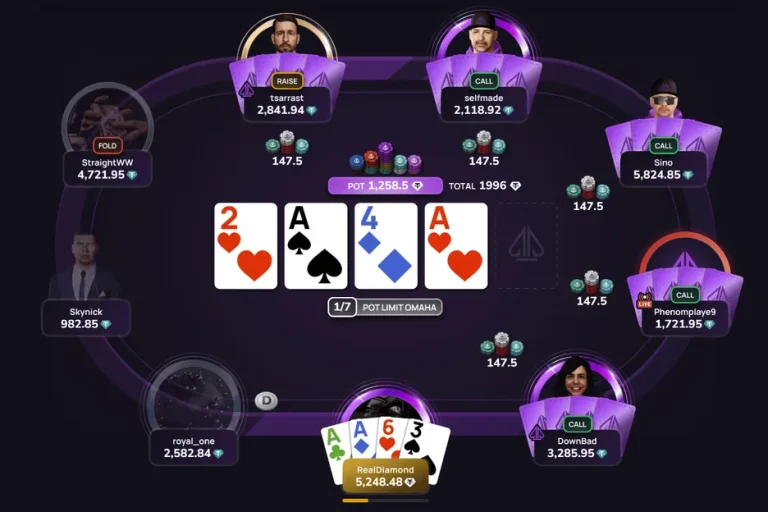Irish Poker is an exciting hybrid variant that combines elements of Texas Hold’em and Omaha, offering players a fresh and dynamic gameplay experience. With four hole cards dealt initially and the requirement to discard two after the flop, strategic depth increases significantly—especially from flop to river.
To succeed in Irish Poker, players must adapt their thinking and adjust their strategies at every street. From navigating the unique post-flop decision to managing hand strength and position, every stage of the game offers opportunities—and risks—for those who know how to capitalize.
What Makes Irish Poker Different?
The most defining characteristic of Irish Poker is the four-hole card deal, similar to Omaha. However, unlike Omaha, players discard two of those cards after the flop. This delayed decision creates a unique dynamic, where early information heavily influences what hole cards you keep moving forward.
It’s a game that blends the big-hand potential of Omaha with the hand-reading and betting skill of Hold’em, making it a thrilling format for both casual and seasoned players.
Pre-Flop Strategy in Irish Poker
Before the flop, players are dealt four hole cards. Pre-flop decisions in Irish Poker should be made with both Omaha-style hand analysis and potential Hold’em plays in mind.
-
Look for synergy: Choose hands where all four cards work well together. Suited connectors, double pairs, or coordinated high cards offer greater potential.
-
Play positionally: As in most poker formats, position is key. Strong hands in late position are especially valuable because you’ll have more information when discarding post-flop.
Flop Strategy and the Key Discard Decision
The flop is the most critical moment in Irish Poker, as players must discard two of their four hole cards after seeing the community cards.
-
Re-evaluate your hand: Determine which combination of two hole cards gives you the strongest potential moving forward.
-
Avoid overcommitting: Don’t get emotionally attached to your original four cards. Instead, base your discard on what best fits the board texture and future draw possibilities.
-
Consider blockers and redraws: Discarding a card with potential value might be necessary if it improves your remaining hand’s strength or reduces opponents’ outs.
Turn Play in Irish Poker
Once you’re down to two hole cards, Irish Poker becomes nearly identical to Texas Hold’em in mechanics—but not in dynamics.
-
Board texture matters more: Since players started with four cards, the chances of someone hitting a strong draw or two-pair are higher than in Hold’em.
-
Watch for aggression: Players who played loosely pre-flop may now be sitting on strong post-discard hands. Be cautious but not passive.
River Strategy and Final Decisions
The river is your final chance to extract value or control damage. Decision-making here should be based on:
-
Pot odds and implied odds: Calculate whether calling or betting gives you long-term profitability.
-
Player tendencies: Read your opponents’ actions on earlier streets. If they showed strength post-discard, they may still have a powerful hand.
-
Bluffing opportunities: Because of the unique nature of the discard, bluffing can be more effective when opponents are unsure of your final hand construction.
Advanced Tips for Irish Poker
-
Track tendencies: Over time, notice how opponents choose their discards. This can reveal patterns and help you make more informed decisions.
-
Control the pot size: Since Irish Poker encourages bigger hands, controlling the pot with marginal hands becomes essential.
-
Balance your range: Don’t always discard the same way. Mix up your approach to stay unpredictable.
FAQ
How do I choose which cards to discard in Irish Poker?
Focus on the two cards that give you the highest hand potential based on the flop. Consider straight and flush draws, top pair potential, and how your cards interact with the board.
Is Irish Poker better for Omaha or Hold’em players?
Both Omaha and Hold’em players will find advantages. Omaha players will excel pre-flop, while Hold’em players may have a stronger edge post-discard. The game rewards versatility.
Can Irish Poker be played in tournaments?
Yes, Irish Poker is a popular variant in some home games and mixed-format tournaments. Its unique structure makes it an exciting break from standard formats while still being accessible.


